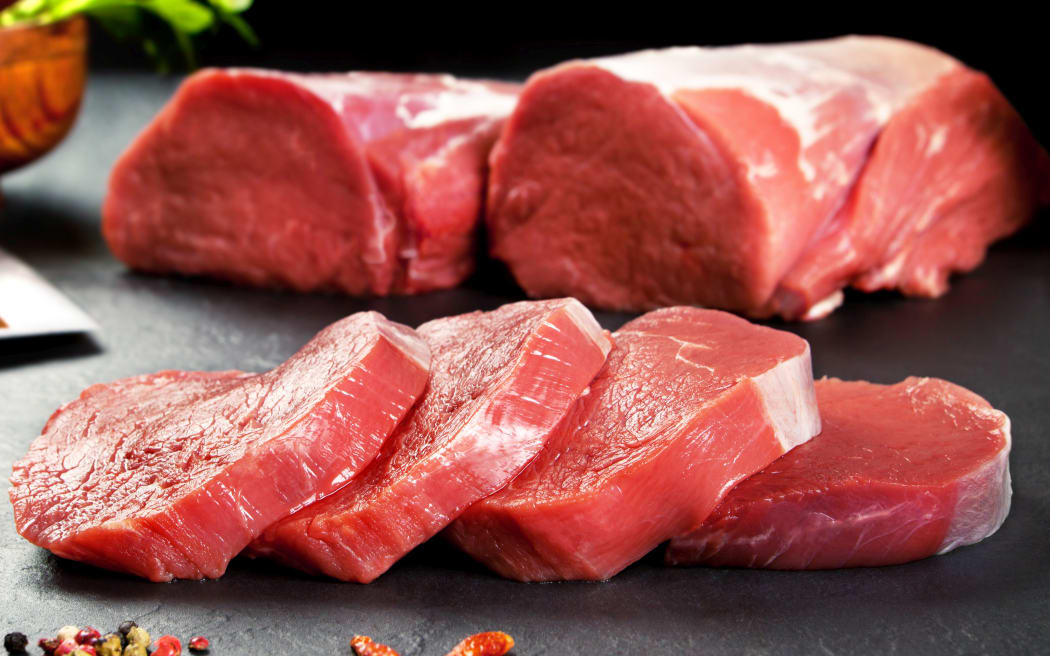
'Lion diet' proponents have a beef with pesky plants. Photo: 123RF
Spend any amount of time on social media looking for information on nutrition, and you’re likely to come across influencers and self-described experts promoting a new type of diet that sounds like a meat-lover’s dream: the ‘carnivore diet’.
Can this really be a thing? Yes, yes it can. I headed down that protein-rich rabbit hole to investigate.
What is the carnivore diet?
The ‘carnivore diet’ is basically what it sounds like: mostly meat. Some proponents also include other animal foods, such as egg yolks and animal fat (lard and the like), and some include honey. But basically, it’s an extremely restrictive version of a high-fat, high-protein, low-carb, keto-style diet.
The foods not allowed include most foods that aren’t meat, including vegetables, grains, sauces, vegetable oils and fruit.
One well-known version of this diet is known as the ‘lion diet’. It was invented by Mikhaila Peterson, daughter of controversial psychologist Jordan Peterson. Peterson claims her own diet – which consists only of beef and salt – has cured her of crippling rheumatoid arthritis, mental health issues and other chronic illnesses. She also says it’s saved the life of her father, who had severe depression and near-fatal reactions to antidepressant medication. Both Petersons say they have been following the diet for five years and are thriving.
What’s the thinking behind this?
The thinking goes that because ancient humans ate mostly meat, that’s what we should do, too, for optimal health. High-carb diets (or what’s often called the ‘standard American diet’) are the cause of all modern disease, the diet’s promoters say, so by eating only meat, people can lose weight, feel more energy, have better mood, clear skin and fewer allergies and diseases.
Many people who promote this diet are very anti-plant. They claim plant foods are full of toxins and anti-nutrients, which instead of nourishing us, actually do us harm. Some of these include lectins and oxalates, naturally-occurring compounds in plants.
Is there science behind this?
There are no proper studies of the ‘carnivore diet’ showing its effects.
There are tons of anecdotes across the internet and social media. One paper has been published, but this was based on an online survey of self-selected individuals who had been following the diet (ie enthusiasts) and their self-reported perceptions of it. In other words: no health markers were measured, so we can’t really take too much from this except that people who like the diet, really like the diet.
Why would anyone try this?
As with most diets, this one comes with many promises of improved health, remission of painful conditions and of course weight loss. Like many diets, it also has a strong element of ‘everything you’ve been told about nutrition was wrong!’ which is a popular theme among promoters of fad diets. This one also – as is the case with Peterson – promises to solve chronic health issues such as autoimmune diseases and allergies.

Nutritionists doubt the carnivore diet will give us all the vitamins and minerals we need to thrive. Photo: Diethood
Could there be benefits?
The carnivore or lion diet is, at heart, a super-strict elimination diet. Because of that, someone who is suffering from a food reaction such as an allergy or a gut disorder (like Coeliac disease) would likely see an easing of symptoms. Elimination diets are used by dietitians when working with people with suspected allergies, IBS and intolerances – the idea being that by eliminating all possible allergens, you can get to a baseline from which to measure reactions to foods which are then – crucially – re-introduced. No one is supposed to stay on an elimination diet long term.
Reena Soniassy, registered dietitian and clinical educator at Massey University’s School of Sport, Exercise & Nutrition, explains that even in a clinical setting, an elimination diet should be designed to meet nutritional needs as much as possible.
“Sometimes for intolerances, there are some cases where you have to go down an elimination diet pathway with a patient. But those elimination diets - while they might be restrictive - are much more liberal than a carnivore diet.”
Soniassy says the diet would likely meet a person’s needs in terms of energy (calories). And she says it could lead to an energy deficit, which would cause weight loss.
“If you have a restricted diet - whether or not you're focusing on one food group or one type of food versus the other - there's often some sort of calorie deficit that happens compared to what you were eating beforehand. So, I would expect that some weight loss may happen.”
Meat is, she notes, a good source of nutrition.
“It’s a great source of protein, so your protein needs would be met. And there are obviously some vitamins, and zinc, B12 and iron.”
The diet also removes all processed foods – an upside. The downside is that it also removes a whole heap of healthy and delicious foods, too.

Dietary variety is the spice of life, says nutritionist Reena Soniassy. Photo: RNZ / Vinay Ranchhod
What are the downsides?
There are a few. Cutting out so many foods means losing out on their nutritional goodness, too.
“Fruit and vegetables are what provide us with a lot of important nutrients: vitamin C, potassium, B vitamins, folate, and importantly, antioxidants as well”, notes Soniassy. “So you will be missing out on all those goodies and all those amazing nutrients that we know play such important roles in the body.”
That’s before we get to fibre, which meat does not contain. It’s crucial for bowel health and regularity – preventing constipation and keeping things moving through the digestive system.
“But also we know that fibre plays an important role in heart health, in terms of regulating our lipid profiles. It helps the body get rid of unhelpful cholesterol or the bad cholesterol.”
Long term, eating a meat-based diet could raise bad cholesterol and increase risk of heart disease, Soniassy says, as well as potentially putting strain on the kidneys in people prone to kidney disease.

Mikhaila Peterson: eschews the greens. Photo: Screenshot
And fibre, vegetables and fruit have been shown to not only look after gut health but also reduce the risk of cancer. “They are cardioprotective and protective against cancer and a whole range of diseases.”
Soniassy thinks starting a carnivorous diet for health reasons “in the long term would be counterintuitive.”
“I think humans - we're not big cats. We are primates; we are omnivores. So we can eat plant-based foods and animal based foods, and we've evolved to do that; it's actually an evolutionary advantage we have.”
There’s also a potential psychological downside.
“It might mess with your psyche a little bit. Highly restrictive diet could lead to disordered eating.”
It’s unlikely many people would be able to stick to this type of diet long-term. Not only because it’s not healthy, but also because it’s boring.
“We eat food for health, but also for enjoyment. It plays a big role in a lot of our social situations.”
The bottom line
A diet based on one food - no matter what that food is - is not an ideal diet.
“There's no one food group or one type of food that will provide the body with everything it needs,” Soniassy stresses.
“Variety is so important... and foods in combination actually support each other and help the body digest and absorb the nutrients better than when eaten in isolation.
“I wouldn't be recommending someone to just eat meat, just like I wouldn't be recommending someone to just eat kale or just eat cauliflower. Each food will have some benefits and each food will have some limitations as well in terms of how well your body will process it just on its own.
"It's about having buddies within what we eat, because they all support each other and support the body in digesting and absorbing all the nutrients we need.”

